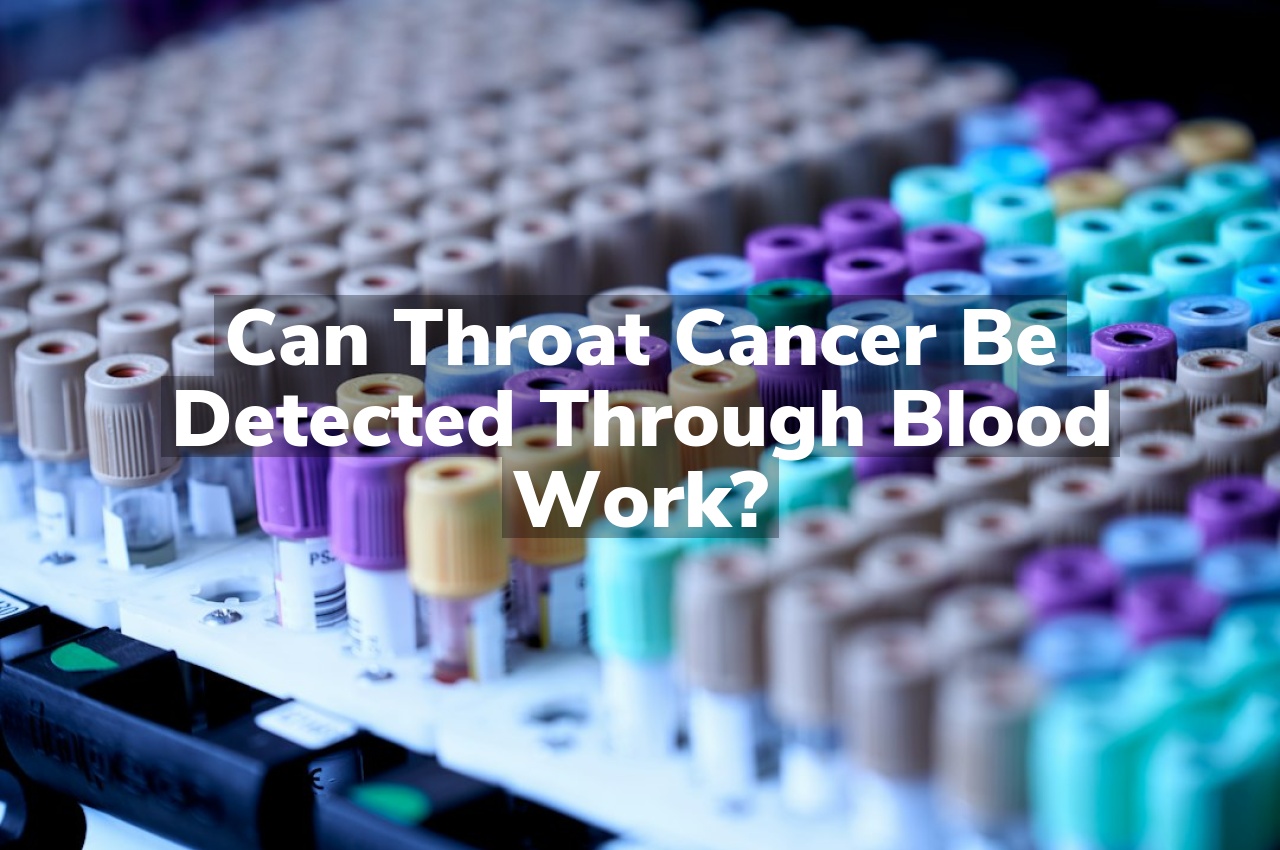Can throat cancer be detected through a simple blood test? At Joel W. Yates Jr. D.D.S., we understand the importance of early detection, and while blood work can sometimes indicate the presence of cancer, it is not a definitive method for diagnosing throat cancer, which typically requires a combination of physical examinations, imaging tests, and tissue biopsies for accurate detection.
Biomarkers for Throat Cancer Detection
Identifying throat cancer in its early stages is crucial for successful treatment and improved patient outcomes. While traditional diagnostic methods involve imaging and biopsies, recent advancements in medical science have led to the exploration of blood-based biomarkers as potential tools for cancer detection. These biomarkers are substances, often proteins, that can indicate the presence of cancer in the body. Researchers are actively investigating specific biomarkers associated with throat cancer, such as tumor DNA fragments, circulating tumor cells (CTCs), and protein markers that could be detected through a simple blood test. Although this area of research is promising, it is still in development, and blood work alone may not be sufficient for a definitive diagnosis of throat cancer at this time.
For a more comprehensive understanding of current diagnostic practices, it’s important to consider the full spectrum of available tests. By exploring How is oral cancer diagnosed through effective tests?, patients and healthcare providers can gain insights into the various methods used to identify throat and oral cancers, including imaging techniques, endoscopic examinations, and tissue biopsies. These procedures, combined with emerging blood biomarker research, contribute to a multi-faceted approach to cancer detection that may enhance early diagnosis and treatment planning.
Blood Tests vs. Tissue Biopsy
When it comes to diagnosing throat cancer, medical professionals typically rely on tissue biopsies as the gold standard. A biopsy involves taking a small sample of tissue from the suspected area and examining it under a microscope for cancerous cells. This method is highly accurate and can provide definitive information about the presence and type of cancer. On the other hand, blood tests, which are less invasive, are not currently a standard diagnostic tool for throat cancer. While research is ongoing, blood tests may help in detecting certain biomarkers that could suggest the presence of cancer or provide information about the patient’s overall health, but they cannot confirm a throat cancer diagnosis with the same level of certainty as a tissue biopsy.
Blood tests may be used in conjunction with other diagnostic methods to monitor the patient’s health and response to treatment once a diagnosis has been made. They can check for signs of infection, anemia, or other conditions that may affect treatment plans. However, for those concerned about the risks and early detection of throat cancer, it’s important to consult with healthcare professionals who specialize in this area. For more information on the importance of early detection and screening methods for oral cancers, consider exploring resources such as the Early Detection Oral Cancer Jefferson article.
Advances in Liquid Biopsy Technology
Recent advancements in liquid biopsy technology have shown promise in the early detection of various cancers, including throat cancer. This non-invasive diagnostic method analyzes circulating tumor DNA (ctDNA) and other cancer-related biomarkers found in a patient’s blood sample. While traditional biopsies require tissue from the tumor site, liquid biopsies offer a less invasive alternative, potentially leading to earlier detection and treatment.
Researchers are continually refining the sensitivity and specificity of these tests, aiming to improve their ability to detect throat cancer at its earliest stages. As this technology progresses, it may become a standard tool for oncologists to monitor tumor dynamics and response to treatment, revolutionizing the approach to cancer care.
Understanding Throat Cancer Blood Panels
While throat cancer is typically diagnosed through physical examinations, imaging tests, and tissue biopsies, researchers are exploring the potential of blood panels for early detection. Blood tests that look for tumor markers—substances produced by cancer cells or by the body in response to cancer—can sometimes offer clues about the presence of throat cancer. However, these tests are not yet definitive for throat cancer diagnosis on their own.
They may help in monitoring the disease or its response to treatment. Understanding throat cancer blood panels involves recognizing their supportive role in the broader diagnostic process, as they can indicate abnormal immune responses or the presence of certain proteins that could be associated with malignancies in the throat. It’s important to consult with a healthcare professional to interpret these tests accurately and to understand their limitations in the context of throat cancer detection and monitoring.
Limitations of Blood-Based Diagnostics
While blood tests can offer valuable insights into overall health and in some cases, help in the detection of certain cancers, they have limitations when it comes to diagnosing throat cancer. Blood-based diagnostics cannot directly detect throat cancer or provide a definitive diagnosis. Instead, they may identify abnormalities or markers that suggest further investigation is necessary.
For instance, elevated levels of certain proteins or the presence of cancer cells in the blood could prompt additional tests. However, these findings are not exclusive to throat cancer and can be associated with a variety of conditions. Moreover, early-stage throat cancers may not produce detectable signals in the blood, making it challenging to rely solely on blood work for early detection. Therefore, a comprehensive approach that includes imaging, endoscopic examinations, and tissue biopsies remains the gold standard for diagnosing throat cancer.
Conclusion
For a thorough evaluation and to discuss oral cancer screening, call Joel W Yates Jr. D.D.S at 336-846-2323, or read our reviews on Google Maps.






